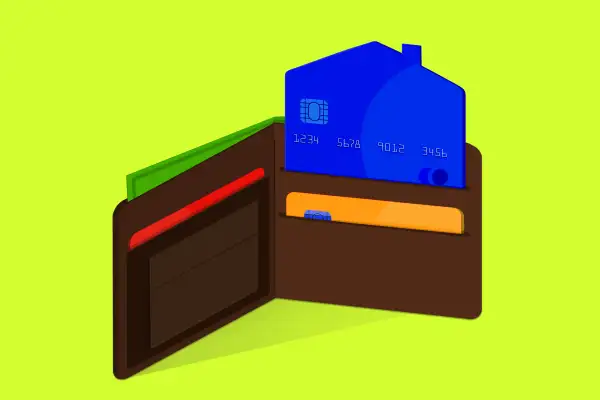Putting Your Rent on a Credit Card May Be Tempting — But It’s Risky

More and more Americans — some financially strapped, others just stuck at home — are putting their monthly rent on credit cards. While the move can save you hassles, and maybe even help you score perks, there are big risks too.
With 26 million Americans filing for unemployment insurance over the past five weeks, looming rent and mortgage payments are at the forefront of many people’s minds. Bruce McClary, spokesman for the National Foundation for Credit Counseling, says the organization has been fielding roughly 50% more calls and online requests for help from people trying to manage new and existing debts.
As property owners and landlords face a cascade of people suddenly struggling to cover their bills, a growing number are making it more convenient for renters to pull out the plastic. According to the Wall Street Journal, one property-management software platform reported that rent payment via credit card spiked by 13% in April, while a digital payments processor found a 30% jump in credit card usage. (It is typically not possible to pay a mortgage with credit card.)
Convenience...and points
Switching to plastic — as opposed to snail mail — can seem like an expedient move, while much of the country is hunkered down and apartment management offices aren’t necessarily open to process paper checks. The Journal notes that some landlords are proactively offering to waive the processing fee (usually around 2% to 3%) they usually charge for payments made via credit card.
In theory, using a credit card to pay rent (minus a transaction fee) can be a new way to accumulate a cache of rewards miles or points. Especially if your day-to-day spending has dropped — which it likely has — charging a rent payment can make up that shortfall in your rewards balance.
“If you're looking to earn points under normal circumstances, and you could otherwise afford to make your rent payment using cash but using your credit card will help you move towards earning more rewards faster, that’s a great idea, as long as you’re paying off the balance quickly,” McClary says.
Big risks too
That caveat — that you pay off the balance in full when it’s due to avoid paying interest on top of your rent — is an important one. In spite of the Federal Reserve knocking its benchmark interest rate to around 0%, McClary says that APRs on existing credit cards are hovering around 15%, while APRs for new card accounts can push up into the 20% range.
Obviously, if your income stream has dried up, adding an interest payment puts you at risk of compounding your financial distress. Even if you’re waiting on unemployment benefits, processing delays being reported by many states make it a gamble to put your rent on plastic.
If you’re considering using your credit card to pay rent, McClary offers a few pointers: If your landlord hasn’t already offered to waive the processing fee, contact them and ask before paying. And don’t take out a cash advance and pay your rent that way, because APRs for cash advances are generally higher, and many don’t have a grace period, so you start accruing interest charges right away.
And don’t forget, McClary adds, that your credit card company might not be your only option. “An alternative would be to turn to your bank or credit union if you have to borrow and see if they have any emergency assistance loans they might be offering,” he says.
More from Money:
Best Balance Transfer Credit Cards of 2020
The CARES Act Makes It Easier To Withdraw from Your 401(k). Here's What to Know Before You Do
